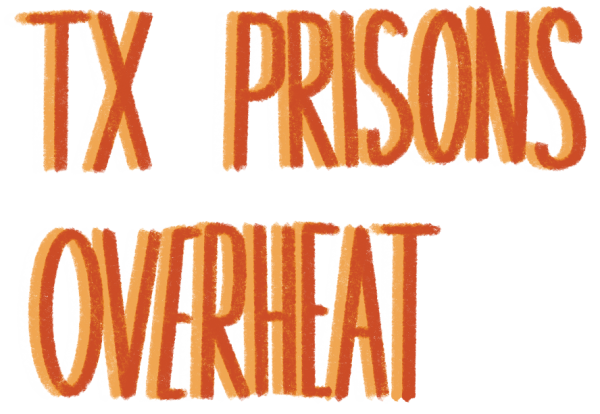A Heartless Heartbeat Bill
December 17, 2021
While finalizing a story relating to the Texas Heartbeat Bill was published in the Liberator’s last issue, the Liberator staff felt it necessary to publish an article representing the views of the majority of the staff. If there are any questions or concerns, please email the Liberator at [email protected].
It’s hard to go a day without reading about the conservative majority of state legislators taking away Texans’ rights. From trans rights to critical race theory to voter suppression, I’m tired. I’m tired of living in fear of the next legislative session headline. After the passage of the “Heartbeat Act,” my exhaustion has only been amplified alongside so many other uterus-owners in the state.
Impassioned arguments about abortion have echoed through every government building in the United States since the Supreme Court ruling in Roe v. Wade in 1973. In the 48 years since, conservative Texas legislators have made consistent efforts to restrict the rights the ruling guaranteed. During the 2021 legislative session, they came closer than ever to getting rid of these rights completely.
On Sept. 1, 2021, a Texas law called the Heartbeat Act went into effect, which banned nearly all abortions after six weeks of pregnancy or when a fetal heartbeat can be detected. By doing so, it violated a pregnant person’s right to bodily autonomy—indirectly violating not only a number of Supreme Court cases, but explicitly and directly violating the precedent set by Planned Parenthood v. Casey (1992) that a pregnant person cannot face an undue burden (factors that would make doing something impossible) in seeking an abortion before the fetus reaches viability.
Bodily autonomy is the right to make decisions about one’s own life and future. Supreme Court cases such as Griswold v. Connecticut, Gonzales v. Oregon, and Lawrence v. Texas all ensure Americans’ right to bodily autonomy through the explicit right to choose what happens to their bodies.
A pregnant person’s right to control their body is not an abstract understanding of the constitution that remains hanging in the abyss. As defined by Supreme Court cases Planned Parenthood v. Casey and the famous Roe v. Wade, abortion is a right.
The Heartbeat Act makes getting an abortion near-impossible. In six weeks, the symptoms of pregnancy are almost always limited to mild nausea, fatigue, and irritability. But those are the exact same symptoms I feel when I have my period. In six weeks, someone with the average menstrual cycle would be just two weeks late for their period, but not everyone has the “average period.” But menstrual cycles do not adhere to a particular standard or law: for some, going six weeks without getting a period is perfectly normal.
Besides the Heartbeat Bill placing an undue burden on a pregnant person’s access to an abortion, laws like it have historically been ineffective and harmful to public health. When a pregnant person cannot access a legal abortion, certain extenuating circumstances can cause them to seek an abortion via other methods including black market medication, termination via someone who is not a licensed abortion provider, or inserting a foreign object into the vagina or cervix. All of the above methods of terminating pregnancy can cause long term health effects, or, in the worst cases, death. Banning abortion does not stop abortions. It stops safe abortions.
Abortion access is disparate across classes and locations. People who live in rural areas, live below the poverty line, don’t have access to reliable transportation, or can’t afford to take time off work have less of an ability to receive abortions on a timely basis or even at all. The gap that this law creates is agitated by the short time period before an abortion is illegal, and favors those with higher socioeconomic status.
Those opposed consider abortion to be “killing a child,” but this characterization of the medical procedure has been debunked by scientists time and time again. According to the American Pregnancy Association, before 21 weeks, fetuses cannot live unsupported, even with a respirator. Until 24 weeks, fetuses cannot feel pain. These and a variety of other factors clearly refute the framing of abortion in this way.
Abortion has been described by opponents as an act of self-worship. But regardless of the medical necessity of an abortion, all abortions have a variety of possible adverse health effects and can cause intense physical pain and sometimes insurmountable trauma. Defining abortion as an act of self-worship completely discounts the reality of an experience that almost nobody would willingly participate in given the legitimate choice. Defining abortion as an act of self-worship is an perspective that unveils a lack of knowledge on the facts of abortion.
Abortion is a right that every person has—not only according to precedents set by those who defend our Constitution, but also according to common logic and morality. A pregnant person must be guaranteed the right to control their body. If the government does not allow American citizens to control their own bodies, it will set a dangerous precedent for the future. People deserve control of their own bodies. Abortion cannot be the exception to a right that has been in place since the founding of our nation. Every American citizen has the right to choose what happens to their body. Pregnant people cannot be the exception.







